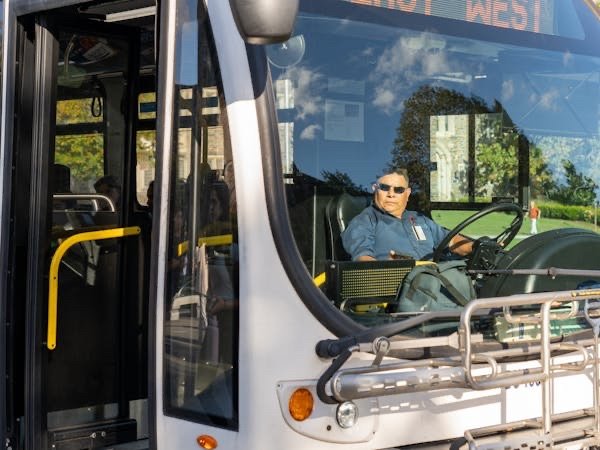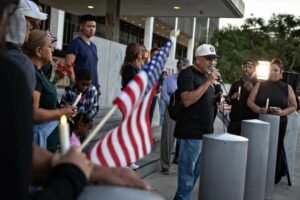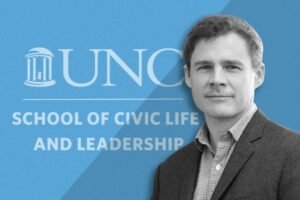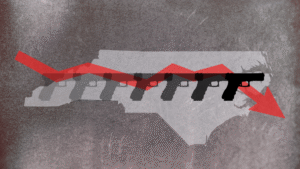On a summer evening along Ninth Street, chants echoed in Spanish and English: “¡Vamos Luis!” and “Let’s go Luis!” The crowd of Duke students, faculty, and Durham residents gathered not just to support a familiar face, but to spotlight a looming crisis that resonates well beyond campus.
At the heart of the rally was Luis Alonso Juárez, the longtime driver of Duke’s C1 bus—known affectionately to students as the “party bus.” For 19 years, Juárez has ferried students between East and West Campus, providing rides that became more than just transport. For many, his presence represented warmth, continuity, and community in a place of constant change.
But Juárez now stands at risk of deportation. He immigrated from Honduras three decades ago under Temporary Protected Status (TPS), a federal designation that allows immigrants from certain crisis-stricken countries to live and work in the United States. This summer, the Department of Homeland Security announced it would end TPS protections for Hondurans, effective September 8, leaving Juárez and thousands like him in peril.
“I’ve been so worried, I couldn’t even sleep,” Juárez told supporters through tears. “I have my house, I have my family. All I want is the right to continue to work, as I have for so many years.”
What’s at Stake for Juárez—and Durham
TPS was created by Congress in 1990 to shield immigrants from countries devastated by natural disasters, war, or political unrest. As of 2025, about 337,000 immigrants nationwide hold TPS, according to the Migration Policy Institute. Honduras first received the designation in 1999 after Hurricane Mitch. Yet each renewal is subject to political shifts, and changes in administration have repeatedly left holders in legal limbo.
For Durham, Juárez’s story highlights how national policy decisions filter down to local communities. Nearly one in seven Durham residents is foreign-born, and Latino immigrants are a fast-growing part of the population. According to the American Immigration Council, immigrants in North Carolina contribute over $1.2 billion in state and local taxes annually and hold purchasing power exceeding $27 billion. Many are integral to universities, hospitals, and service industries that sustain daily life in the Triangle.
Students and Faculty Rally in Support
The demonstration was organized with the help of Siembra NC, a Durham-based immigrant rights group. Students carried handmade posters, chanting as Juárez stood among them.
“Without people like Luis, I wouldn’t feel like I do at Duke,” said Joyce Thomas, a senior. “He makes campus feel like home. That’s why we’re here.”
Faculty echoed the sentiment. Katya Wesolowski, a cultural anthropology lecturer, explained how she had planned to use Juárez’s bus in her course Performing Brazil, treating it as a moving classroom for music and dance.
“Workers at Duke are not invisible,” she said. “They are integral to our students’ education. Luis is not just an employee—he is part of our educational community.”
City Leaders Weigh In
The demonstration extended beyond the Duke bubble. Durham City Council member Javiera Caballero, herself an immigrant from Chile, addressed the crowd.
“We have to work diligently to protect our workers in Durham, whether at Duke or beyond,” she said. “This city has always stood together, and when we do, we achieve good things.”
Caballero’s remarks connect to Durham’s broader track record. In 2017, the City Council passed a resolution reaffirming Durham as a “welcoming city” for immigrants, despite pressure from federal authorities. That ethos continues today.
Legal and Political Pathways
Juárez sought help from Duke’s Visa Services office, hoping the university could sponsor him for an employment-based visa. But a university spokesperson said Duke had “done all it can under the law.” Without federal intervention, options are slim.
Advocates now aim to pressure lawmakers. Nikki Marín Baena, co-director of Siembra NC, told the crowd that Juárez’s case should be escalated to higher offices:
“They can stop this. They can provide Deferred Enforced Departure—as has been done before—to keep Luis and others safe.”
Indeed, in 2021 the White House used DED to protect immigrants from Liberia and Venezuela, demonstrating executive precedent.
On September 4, Juárez and his supporters will ride the C1 bus to the North Carolina General Assembly in Raleigh, where meetings with legislators are planned. Organizers say they will distribute information to fellow passengers and lobby directly for his case.
Why This Story Resonates
Juárez’s situation underscores a broader truth: Durham’s vibrancy is sustained by immigrant labor, much of it precarious. When protections like TPS vanish, entire communities feel the shockwaves.
At the Bull City Citizen, we believe journalism must do more than document events—it must hold space for the voices that shape our city’s character. Juárez is not a political abstraction; he is a Durham worker, a neighbor, and a friend to countless students. His struggle reveals both the fragility of immigrant protections and the resilience of communities that rally to defend them.
What’s Next for Durham
For now, Juárez continues driving students across campus, each ride tinged with uncertainty. But Ninth Street’s chorus of voices sent a clear message: in Durham, he is not alone.












